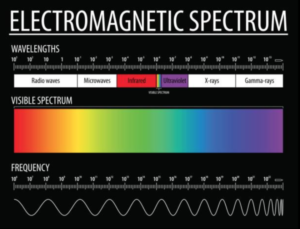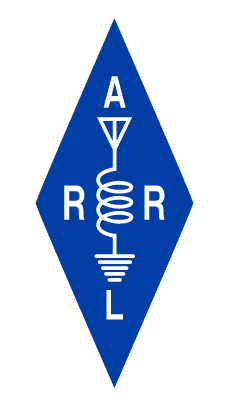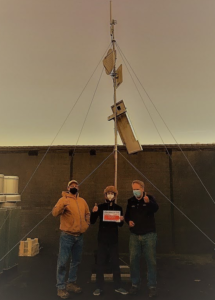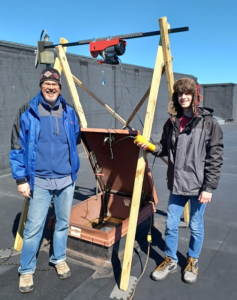Bruce, WA3SWJ, reports that ranges of 20 miles over Cape Cod Bay between the mid and outer Cape have been achieved with sufficient throughput to pass video. 5.8 GHz Ubiquity transceivers were used for the test. The test was an important milestone for the Cape ARES group led by Frank WQ1O, the Cape DEC, Bruce and Lem, W1LEM. More information about MESH networking in New England and progress towards interconnecting them into a New England-wide network is available on the Spectrum Protection and Utilization web page.
 Rob Leiden
Rob Leiden
Bill, NG1P and Jay, K1EHZ Propose MESH Naming for Connecting (Tunneling) Between MESH Systems
After successfully performing the first tunneling between New England MESH systems (Maine and New Hampshire,) Bill and Jay have developed a proposal to enable other MESH systems in New England to connect to each other via the commercial internet and experiment further. This will better position the Division to connect using RF vs. the internet and create a true Division-wide intranet that would allow high speed communication even when the commercial systems are unavailable locally. Any comments should be directed to Bill at ng1p@yahoo.com or Jay at jltaft@comcast.net.
Spectrum Protection and Utilization Working Group Holds Third (zoom) Meeting
The group held its third meeting at 7 P.M. on Monday, April 25, 2022. The agenda included:
- A demonstration of the web-based RFI hunting process additions including remediation and training pages
- RFI team formation progress
- Mesh network coordination and integration issues including tunneling between different networks.
- Creation of a new iogroup for Mesh networking information exchange and coordination
The meeting minutes are found on the Spectrum Protection and Use Page.
It was agreed that two working groups would be formed, a new one, nemesh, for Mesh network coordination and the existing iogroup, spectrum-protection-and-use for RFI team work. Meetings would be held each month, alternating between the two teams.
ME and NH Become the 1st Mesh Networks to Connect in New England
Bill Richardson, NG1P, in Maine and Jay Taft, K1EHZ in New Hampshire, successfully “tunneled” through the internet to connect their 5 GHz Mesh networks on April 27, 2022. This achievement is an important first step towards the interconnection of New England Mesh networks over RF links. Their work demonstrates that it is possible to define an address space across various Mesh networks that will allow them to be interconnected by tunneling between two points. The next actions include finding the right RF “backhaul” devices and frequencies, siting the locations for tunneling nodes, including power and maintenance needs and coordinating the tunneling addresses. A great deal of work remains but the New England Division has taken a step closer to its goal thanks to Bill and Jay.
RFI Troubleshooting Continues to Upgrade
The New England Division Radio Frequency Interference (RFI) Troubleshooting Guide and Section RFI Teams continue to expand. The web pages now include even more RFI information for hams.
The spectrum-protection-and-use iogroup continues to develop the web-based process. A team training page, an RFI remediation techniques page and a page listing known RFI sources have been added. A page that will allow clicking on a New England map to find power utility contacts is being constructed. Five of seven New England sections have RFI Teams and the rest are actively recruiting. A starter set of RFI Team equipment has been obtained. Initial use is planned for later this month. The EMA team is already involved in a case with team- owned equipment.
A forum at the New England / Hudson Division Hamxposition in August in Marlborough, MA will feature both the cooperation between Eversource and the New England Division and the process for getting hams help in resolving their RFI issues.
RFI Troubleshooting Guide now Available for Comment
The New England Division RFI Troubleshooting Guide is a resource for all radio amateurs in the New England Division and part of a process in place to help hams in the Division with their RFI issues. The seven New England sections are recruiting RFI Team members to assist Division hams who work through the Guide and need additional help to resolve their RFI issues. The teams will help to interface with the ARRL Lab and utilities, build credibility with both and build up a body of information that can be used as a reference.
The noise floor on our bands has risen dramatically in recent years due to the proliferation of many RF-generating technologies: solar energy systems, LED’s, especially grow lights and municipal lighting systems, internet-connected devices, cable leakage, power system component failures and many more. The creation of this RFI Troubleshooting Guide and the RFI Teams are an effort to improve the quality of our spectrum and our ability to mobilize in response to threats to that spectrum.
As we ramp up the RFI Teams and the use of the RFI Troubleshooting Guide, we welcome your suggestions to improve the process.
Spectrum Protection and Utilization Working Group Holds Second (zoom) Meeting
The group held its second meeting at 7 P.M. on Friday, March 18, 2022. The agenda included:
- Tools for RFI hunting
- A demonstration of the web-based RFI hunting process
- The EMC Committee Meeting on 3/8
- RFI team formation
- Mesh network coordination and integration issues including additional networks identified to the group.
The meeting minutes are found on the Spectrum Protection and Use Page.
Mesh Nodes Start to Grow in New England
From Newport County (RI) Radio Club Facebook page:
Thanks are due to Rob, KB1ZZU, Eagle Scout (and Wentworth Institute student) and David Streets, his dad, for spending seven hours atop a roof on a windy Tuesday doing heavy maintenance and system hardening on three ARDEN mesh nodes in Cranston, Rhode Island. The 2 GHz and 5 GHz nodes are back online and are ready for action. The work party was organized by Mike, K1NPT.
Eagle Scout Rob, KB1ZZU, and his dad readied three mesh nodes for service in Cranston, RI.
[You can learn more about New England spectrum usage and mesh networks at <https://nediv.arrl.org/spectrum-protection-utilization/>.]
Spectrum Protection and Utilization Has a New Web Page
 We’ve created a place to let the New England Division keep up to date on the work to preserve our frequencies and maximize their use. Our groups are working on ways to better find and eliminate noise and to coordinate the work of various mesh network groups throughout New England. We are also going to post any developments in pending FCC actions and any other current events that can affect our frequencies.
We’ve created a place to let the New England Division keep up to date on the work to preserve our frequencies and maximize their use. Our groups are working on ways to better find and eliminate noise and to coordinate the work of various mesh network groups throughout New England. We are also going to post any developments in pending FCC actions and any other current events that can affect our frequencies.
January Town Hall Question: How Does My Shack Live On?
Some hams want to know that their equipment will “live on” and be used, especially if it can be made a part of a museum exhibit or club station. Finding the right place and then including that provision in a will isn’t always easy. There may not be a museum near-by and the local club may not have a station of any equipment of its own. We’ve gathered up some information and provided them as either links or text that may point in the right direction.
I’ve been involved in helping to dispose of several estates over the (too many) years and never found a better solution than having a committee of club members help out. This goes for disposing of the estate as well as finding a good home to donate the equipment to. That can be a museum, with tax advantages for the estate but it could be a ham who could not otherwise afford that equipment or one that is handicapped. Using a local club committee usually avoids commissions though the club sometimes shares in the proceeds with the family’s appreciation for their efforts.
If you have additional web sites or information you think we should include let me know and we’ll take a look.


